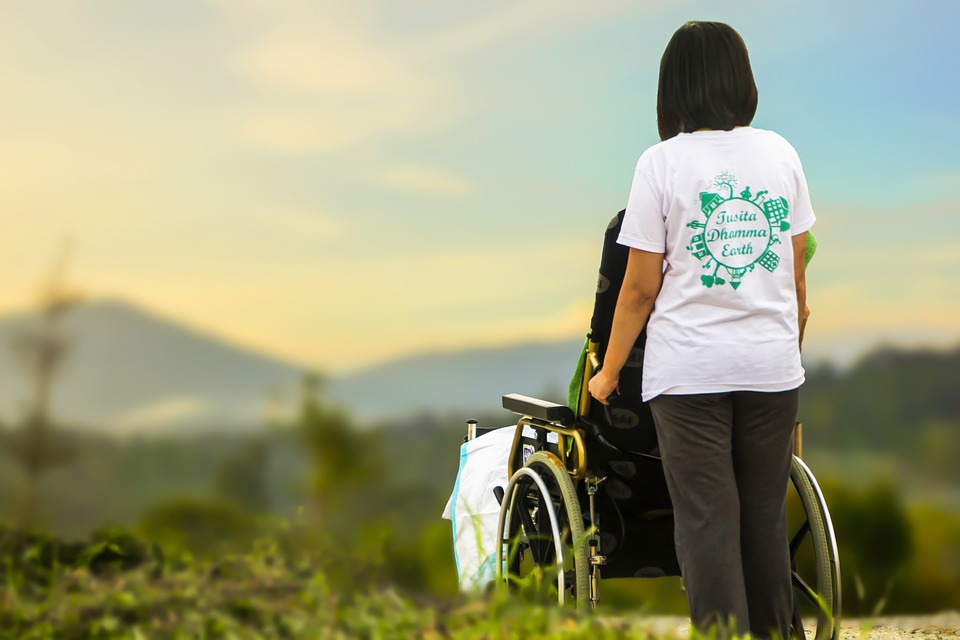
Having a disability hinders one from doing simple tasks with ease. Aside from the physical limitations, many disabled individuals suffer from emotional challenges resulting in anxiety and depression. That's why they must have the support of family and friends at this crucial time.
In the United States alone, there are about 61 million people with disability. 14% of the mentioned population are mobility impaired; some have cognitive, hearing, vision, and obesity challenges. These individuals need assistance to get about their daily lives. Families of disabled individuals need all the help they can get so they too can function normally and earn a living to sustain the needs of the family and their disabled family members.
There are care services such as HenderCare that offer assistance in this field. They provide various essential services such as therapy, including physiotherapy, speech, occupational therapy, and behavioral and play therapy for children. They also offer psychosocial support and supported independent living.
The importance of the services they provide cannot be underestimated. They carefully match the skills of their staff to the needs of the disabled individual. Their highly trained staff are skilled and licensed to perform services to improve the lives of their patients and provide the needed support of their respective families.
But aside from assisted services, you may also utilize new technological devices to help your disabled family member.
Electronic assistive devices are widely used to help disabled individuals cope with their needs and function as much as possible. Many families thank technology for helping their disabled family members feel close to normal in such a difficult time. Here's how technology can help families of disabled persons:
1. Enhance Communication
Living with somebody with hearing loss and visual impairment can be difficult. There will be times the disabled individual will feel isolated and lonely. Not to mention, their safety could be compromised. These assistive devices have helped many disabled individuals and their families extensively.
- Hearing aid -With a hearing aid, a person with hearing loss can join in the conversation and share their thoughts on many things. It would also be easy to call their attention for anything like dinner time, game night, or when out to go shopping. It also increases their safety as they would be warned of things like incoming cars and approaching danger.
- Braille notetaker - For people who are deaf-blind, a braille notetaker can let them communicate effortlessly and say what they want or ask for anything they need.
- Help Them With Chores At Home
Cleaning robots have helped the lives of many disabled individuals keep their homes clean. These smart devices can even detect areas they haven’t visited in the house for a specific period. They can also follow a schedule and return to their charging docks once done. With the help of this new technology, there might not be a need to hire a cleaning person and save money in the long run. Families of disabled individuals will be more at ease that even when they’re not at home, the house will be clean for their disabled family member as this can be operated remotely.
2. Give Them A Means Of Livelihood
Computers and internet applications now make it possible for people with disability to experience working at home. Having a job online and earning money significantly help the economic situation of families with disabled members.
A person with mobility challenges but with complete, precise cognitive functions can still perform the jobs they used to have before they got disabled. Only this time, they'll be doing it in the comfort of their home and away from the office.
Many writers, educators, accountants, and consultants who are disabled still perform their jobs successfully with the help of technology.
3. Manage Their Health And Medication
Smartwatches are now widely utilized by many individuals, disabled or not, to manage their health. These devices measure heart rate and body temperature and alert an individual if they have been idle for a long time. The device will also remind one to take their scheduled medication because for some people with disability, sticking to a medication schedule is crucial for their recovery, and missing this could delay their progress.
4. Entertain Them While At Home
As previously mentioned, people with mobility may suffer depression because of their situation, which cannot be truer for those impaired at their prime. They need all the help they can get to forget about their dire situation and focus instead on other things like their passion or hobbies. Electronic devices like smart tablets are equipped with an app that reads books aloud so those with visual disabilities can still enjoy listening to the narration of the books they loved to read.
5. Increase Their Response To Emergency
For any unfortunate occurrences at home, a disabled family member can easily get help with the use of a personal emergency response system device. Just a simple touch of a button will alert anyone saved on the device that something happened. The disabled individual need not go near a phone to dial the emergency number, and help will be on its way. This increases the peace of mind of their family who might be worrying every time their disabled family member is left at home.
Conclusion
Having a disability is not the end of somebody's life. One may need to be hopeful and focus on other essential things to combat the negativity that would always creep in. For families of people with disability, a little understanding and support would mean a lot. Technological assistive devices and care assistants are there to help you help the people you love.
Author Bio
Vernon Carter is an assistive technology specialist. He conducts seminars and writes blogs to share his knowledge on assistive technology in medicine. In his free time, Vernon enjoys reading and caring for his family.